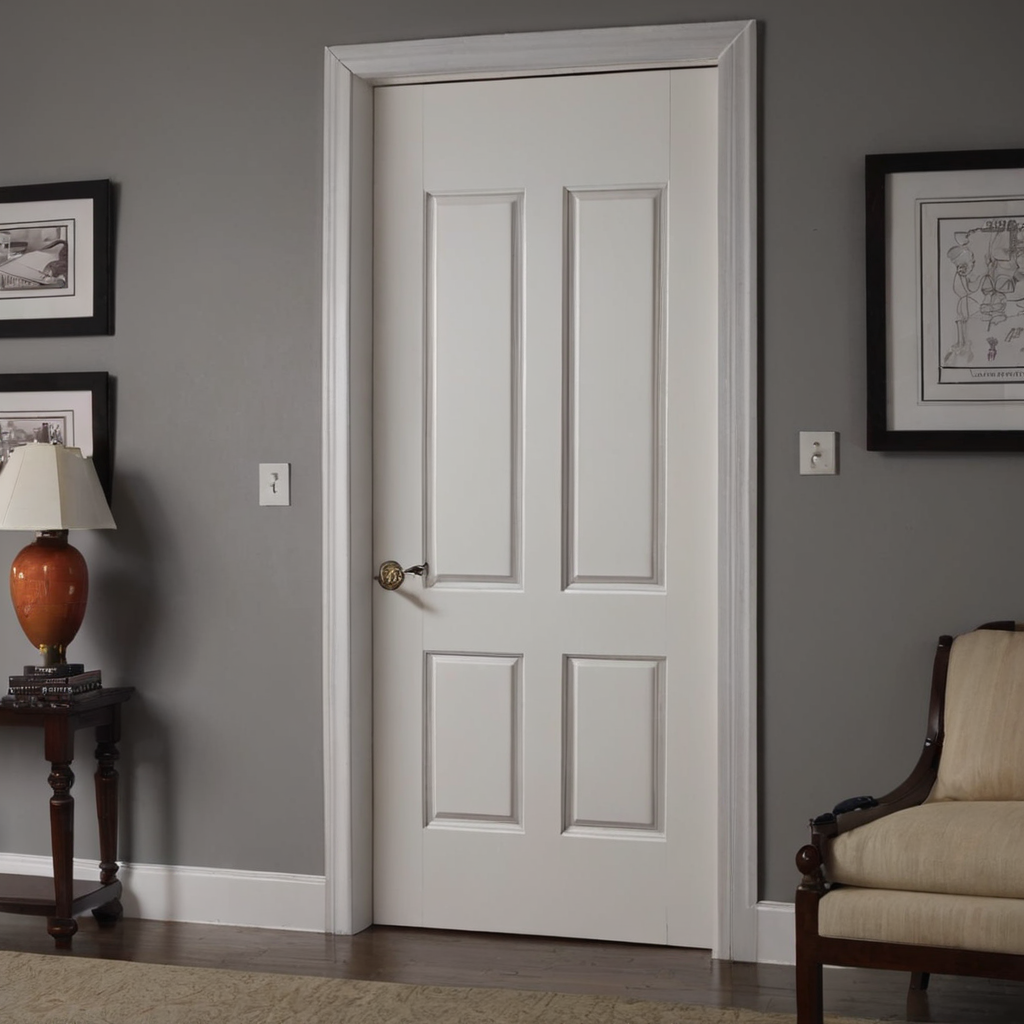
When it comes to replacing or installing interior doors, homeowners often encounter the choice between pre-hung doors and slab doors. Each option has distinct characteristics and benefits, catering to different needs and installation scenarios. Understanding the differences can help you make an informed decision that best suits your project requirements. Here’s a comprehensive guide to pre-hung doors versus slab doors and why pre-hung doors are often the preferred choice:
Pre-Hung Doors: Definition and Advantages
Definition: Pre-hung doors come fully assembled in a frame, including hinges and a door jamb. They are ready to install into a prepared doorway opening.
Advantages of Pre-Hung Doors:
- Ease of Installation: Pre-hung doors simplify installation because they are already mounted on hinges within a frame. This reduces installation time and eliminates the need for precise alignment of hinges and door placement.
- Complete Unit: They include a door frame (jamb), which ensures a consistent fit and finish. This helps maintain structural integrity and improves the door’s functionality over time.
- Improved Insulation and Soundproofing: The door frame in pre-hung doors often includes weather stripping and insulation, enhancing energy efficiency and reducing noise transmission compared to slab doors.
- Customization Options: Available in a wide range of styles, materials, and finishes, allowing for customization to match your interior decor and architectural style.
- Security Features: Pre-hung doors typically come with integrated locksets and strike plates, offering enhanced security and peace of mind.
Slab Doors: Definition and Considerations
Definition: Slab doors consist of just the door itself without a frame or hinges. They are a flat slab of wood or other material.
Considerations for Slab Doors:
- Flexibility: Slab doors offer flexibility in terms of customization and design. They can be trimmed to fit existing frames or customized with different finishes and hardware.
- Cost-Effectiveness: Slab doors are generally cheaper than pre-hung doors upfront. However, additional costs and effort may be required for installation and finishing work.
- Suitability for Replacement: Slab doors are ideal for replacing existing doors in good condition where the frame and hinges do not need replacement.
- Installation Challenges: Installing slab doors requires precise measurements, alignment of hinges, and often additional carpentry skills to ensure proper fit and operation.
Why Pre-Hung Doors Are Often Preferred
1. Time and Labor Savings: Pre-hung doors reduce installation time and labor costs since they come pre-assembled with all necessary components.
2. Enhanced Performance: The integrated frame and weather stripping in pre-hung doors provide better insulation, soundproofing, and overall performance compared to slab doors.
3. Professional Finish: Pre-hung doors offer a professional finish with consistent alignment and functionality, ensuring long-term durability and aesthetic appeal.
4. Security and Energy Efficiency: With built-in features like secure hinges, locks, and improved insulation, pre-hung doors contribute to better security and energy efficiency in your home.
5. Comprehensive Solution: For new construction or major renovations, pre-hung doors provide a comprehensive solution that streamlines the installation process and ensures compatibility with modern building standards.
Conclusion
While both pre-hung doors and slab doors have their merits, pre-hung doors generally offer superior convenience, performance, and overall value for most homeowners. They provide a complete, ready-to-install solution that enhances efficiency, aesthetics, and functionality in your home. Whether you’re upgrading interior doors or planning a new construction project, considering the benefits of pre-hung doors can lead to a smoother installation process and long-lasting satisfaction with your investment.
Cedar Hill St. Louis Jefferson County Olivette Kirkwood Ballwin Arnold Franklin County St Charles County Fenton High Ridge Dittmer Creve Coeur
